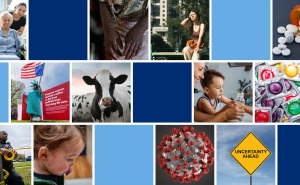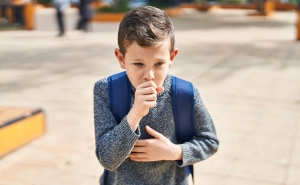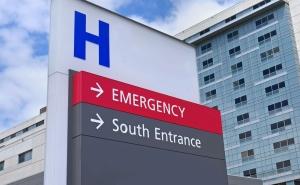Johns Hopkins Gets FDA OK to Test Blood Therapies for COVID-19 Patients
The U.S. Food and Drug Administration approved a clinical trial Friday that will allow Johns Hopkins University researchers to test a therapy for COVID-19 that uses plasma from recovering patients.
Arturo Casadevall, a Johns Hopkins infectious disease expert, proposed the use of convalescent plasma against COVID19 and assembled a team of physicians and scientists from around the United States who are establishing a network of hospitals and blood banks that can collect, isolate, and process blood plasma from COVID-19 survivors. Researchers hope to use the technique to treat critically ill COVID-19 patients and boost the immune systems of health care providers and first responders.
“The ability to carry out a prophylaxis trial will tell us whether plasma is effective in protecting our health care workers and first responders from COVID-19,” said Casadevall, who is a Bloomberg Distinguished Professor and holds joint appointments in the Johns Hopkins Bloomberg School of Public Health and the Johns Hopkins School of Medicine.
The Food and Drug Administration’s move Friday allows researchers to test the use of blood plasma to boost the immune systems of health care providers, first responders and others at high risk of exposure to novel coronavirus, the virus that causes COVID-19. The strategy of isolating plasma is a long-established technology, and recent advances make it as safe as a blood transfusion.
Currently there are no proven drug therapies or effective vaccines for treating COVID-19. Casadevall and his team believe using plasma from recovered viral positive patients could provide immediate immunity to the most at-risk individuals.
“Plasma transfusions are critically important and used every day to save lives of patients who are bleeding. It is incredibly important for us to determine whether convalescent plasma will also be able to save the lives of individuals infected with COVID-19 and prevent infection of COVID-19,” said research team member Aaron Tobian, a professor of pathology, medicine and epidemiology.
Last week Casadevall’s team was awarded $4 million for the research from Bloomberg Philanthropies and the State of Maryland.
“Dr. Casadevall and his colleagues from across Johns Hopkins and partners around the nation are working with creativity and persistence to face this disease head on,” said Johns Hopkins President Ronald J. Daniels. “Arturo’s and his partners’ work reflects Johns Hopkins’ abiding commitment to collaboration and discovery that serves humanity. We are grateful for the FDA’s swift support for this life-saving work and the promise it holds for so many, particularly our frontline healthcare workers, in this extraordinary time.”
At Hopkins, the efforts to deploy convalescent plasma against COVID19 is led by an interdisciplinary team that includes Evan Bloch and Shmuel Shoham of the School of Medicine and Andy Pekosz and David Sullivan from the School of Public Health.
“We are grateful and encouraged that researchers can move forward with this important research aimed at protecting those most at risk, our front-line health care providers and first responders,” said Bloomberg School Dean Ellen J. MacKenzie. “We also applaud the researchers’ vision in the early stages of this pandemic to explore using blood plasma to treat critically ill patients.”
# # #
Media contact for the Johns Hopkins Bloomberg School of Public Health: Kathleen Marmon at 410-562-6005 or kmarmon@jhu.edu.





